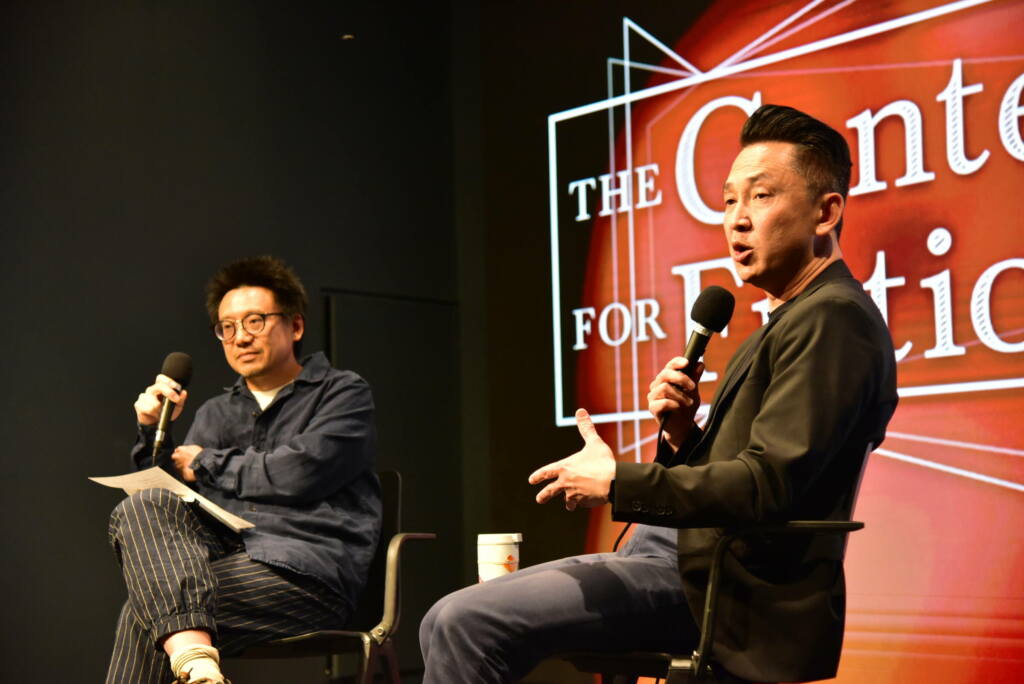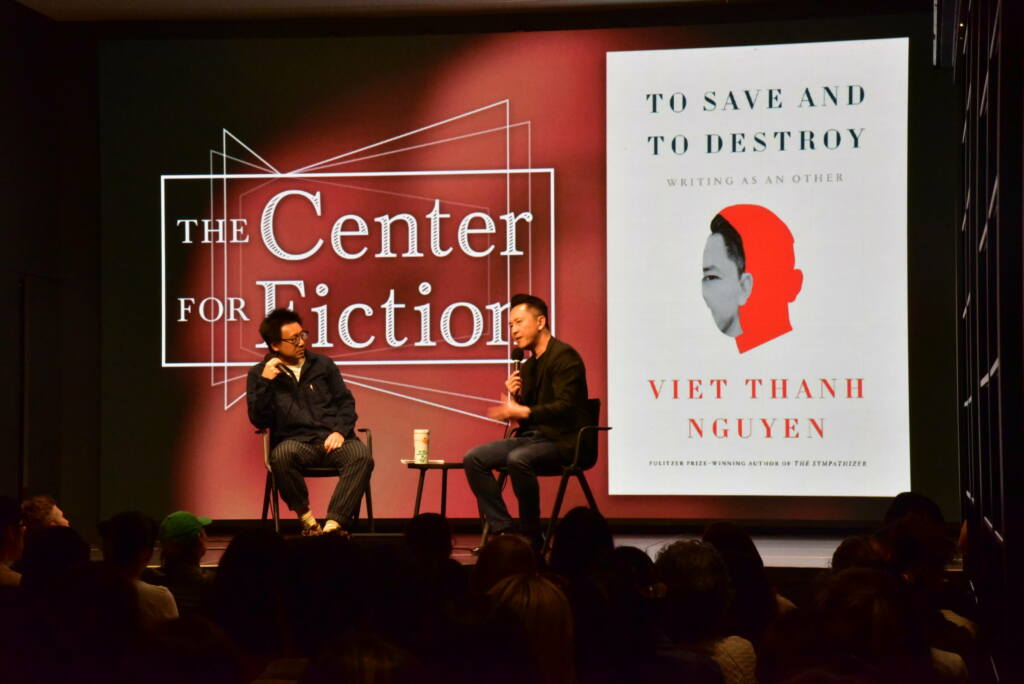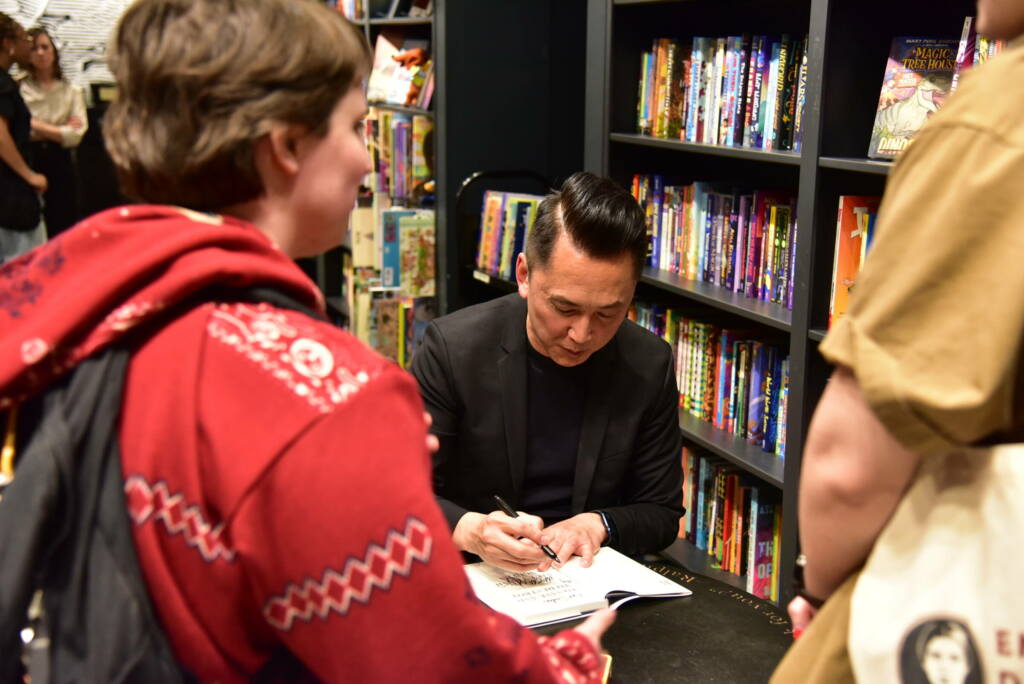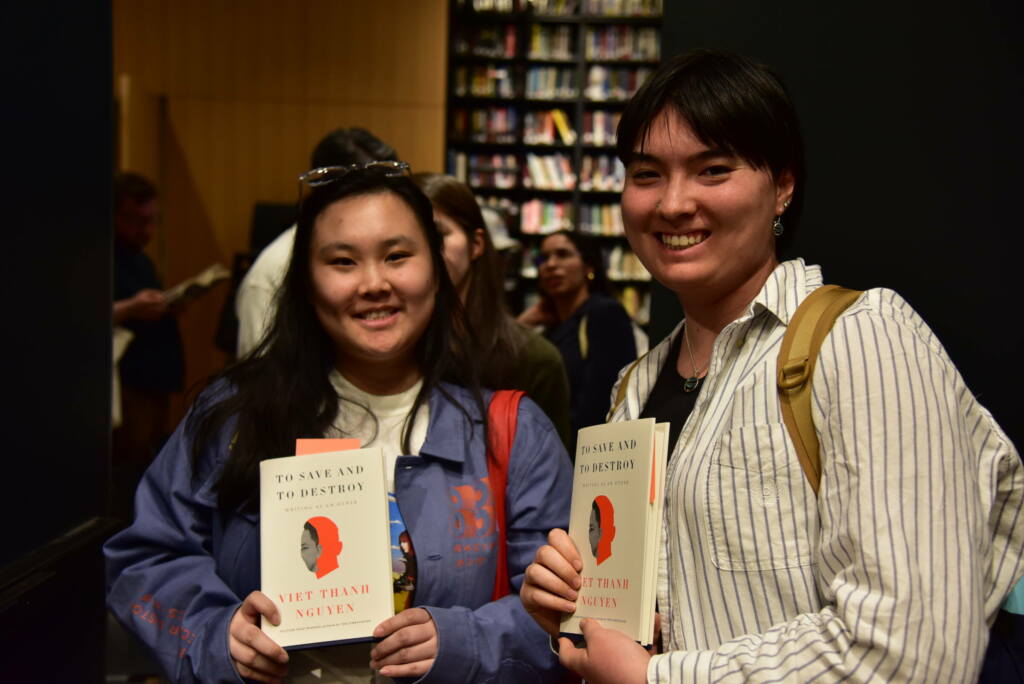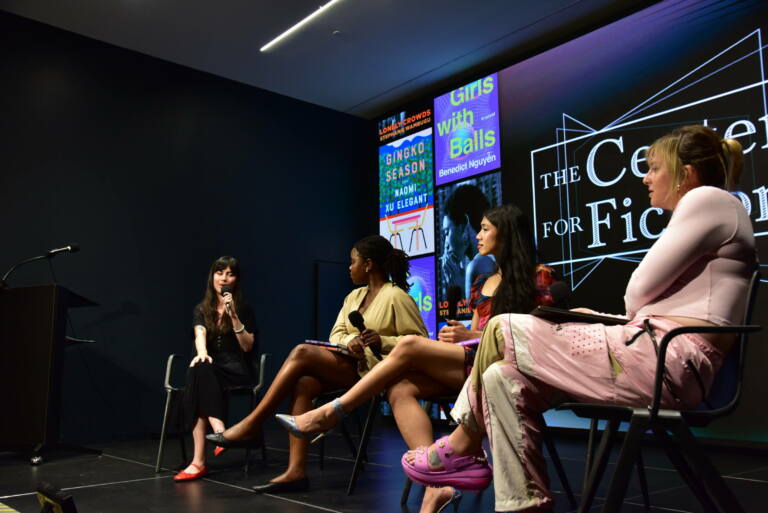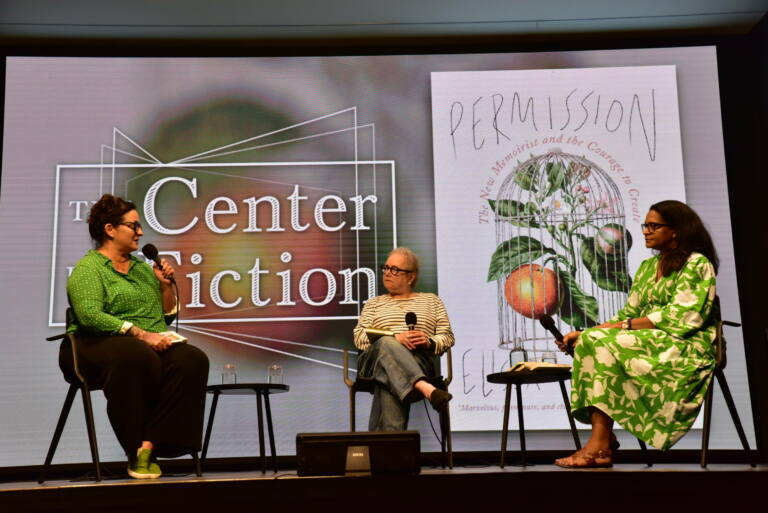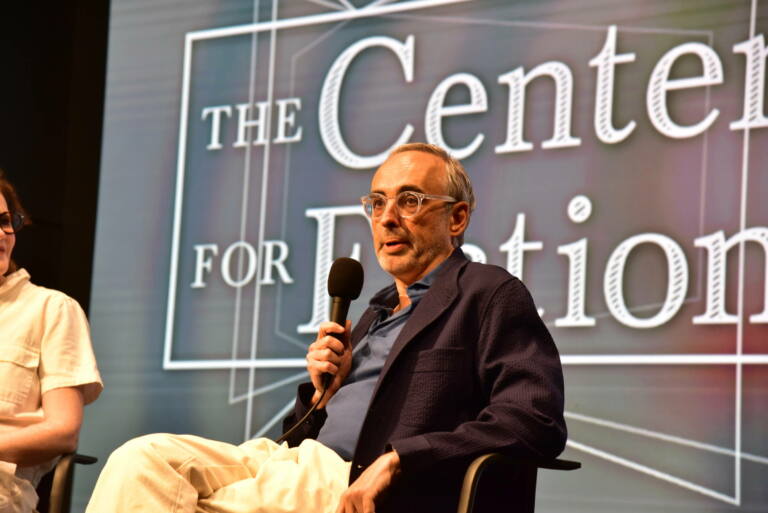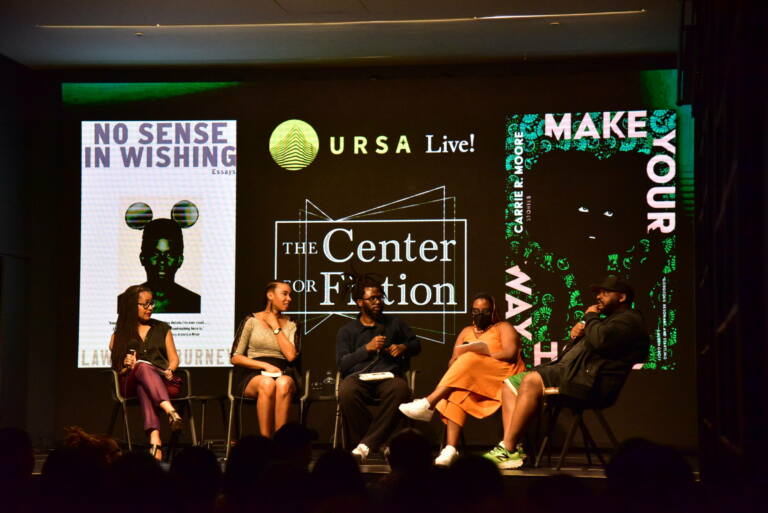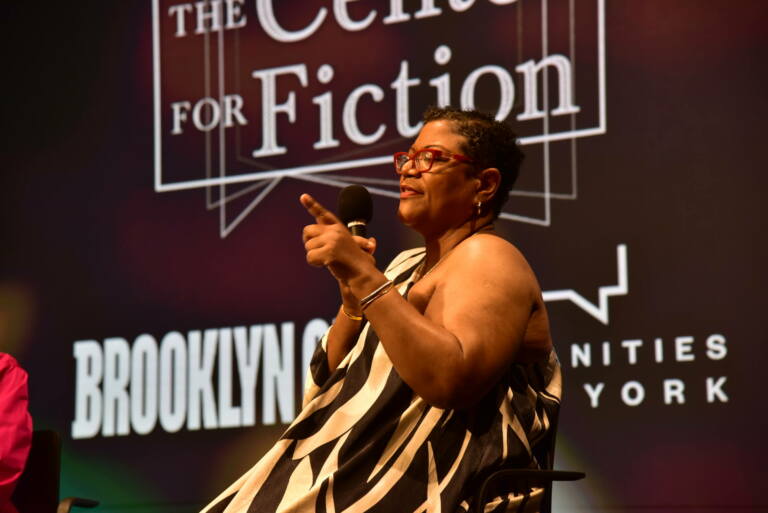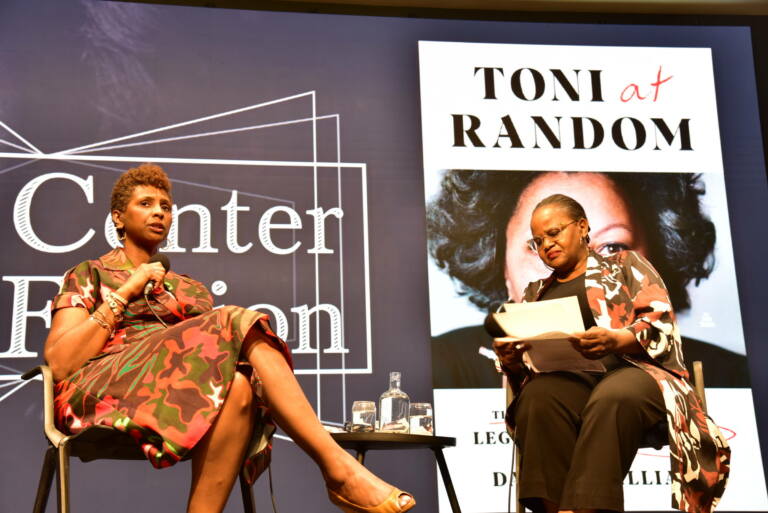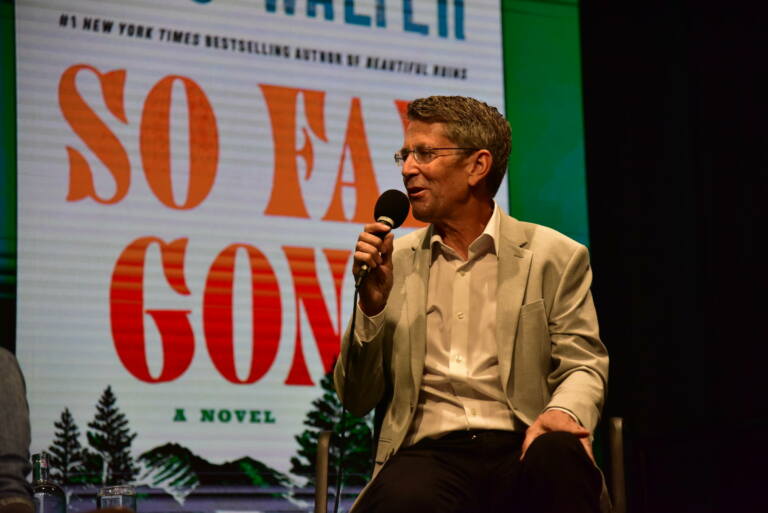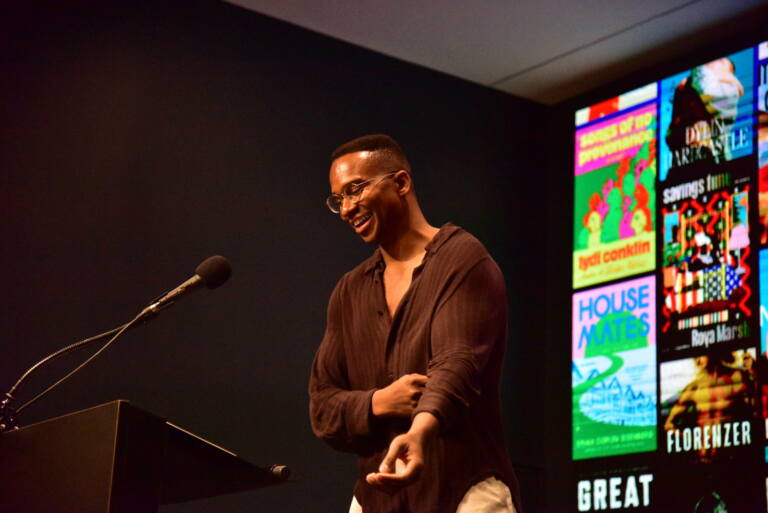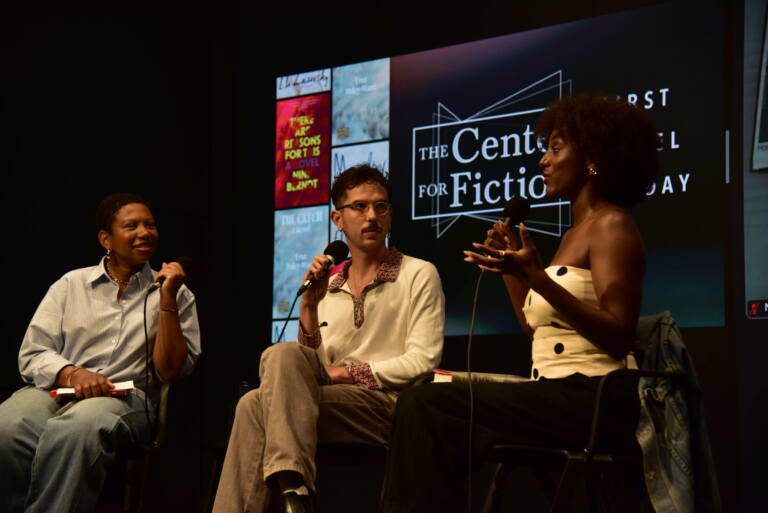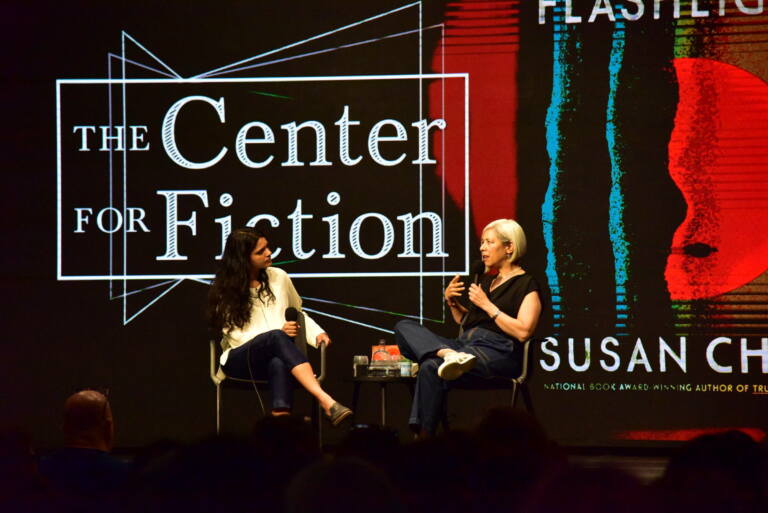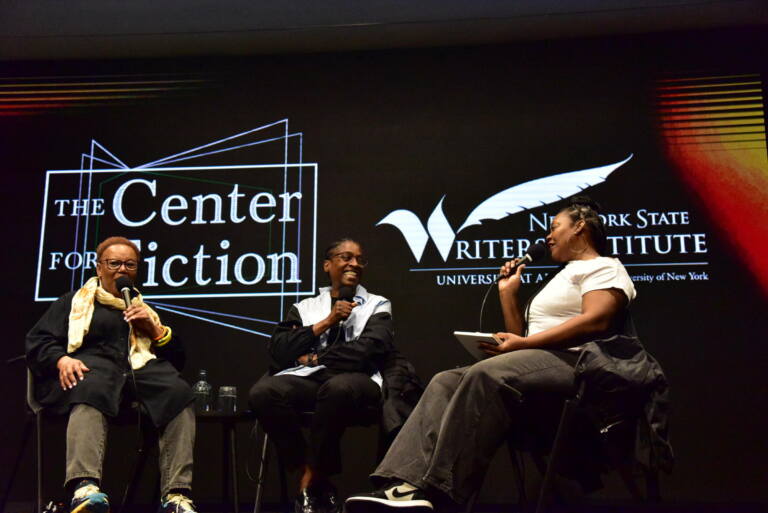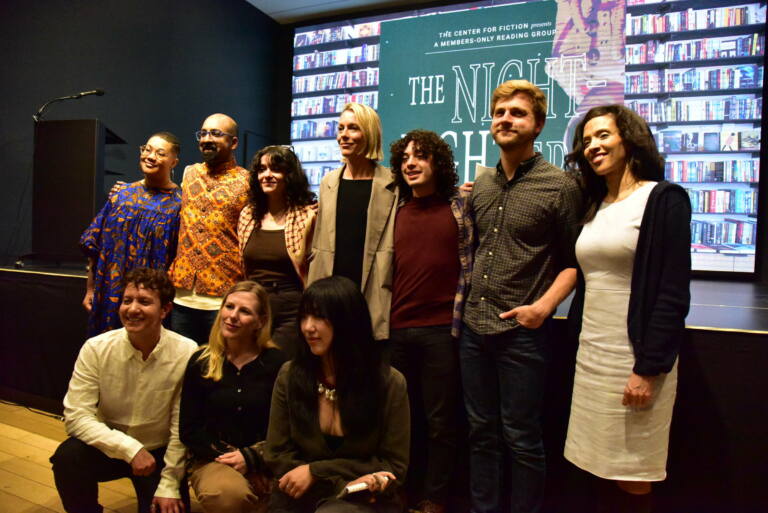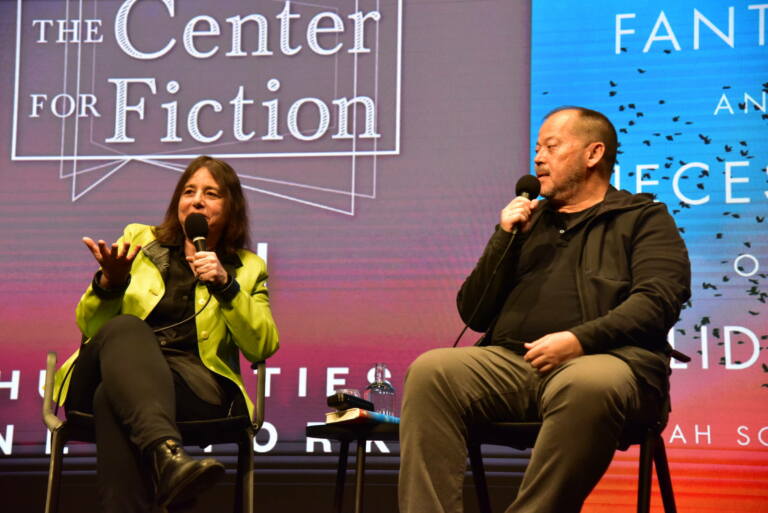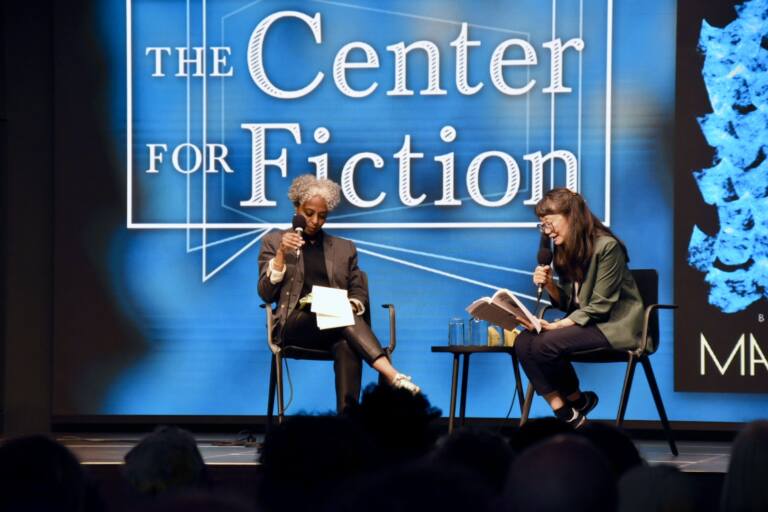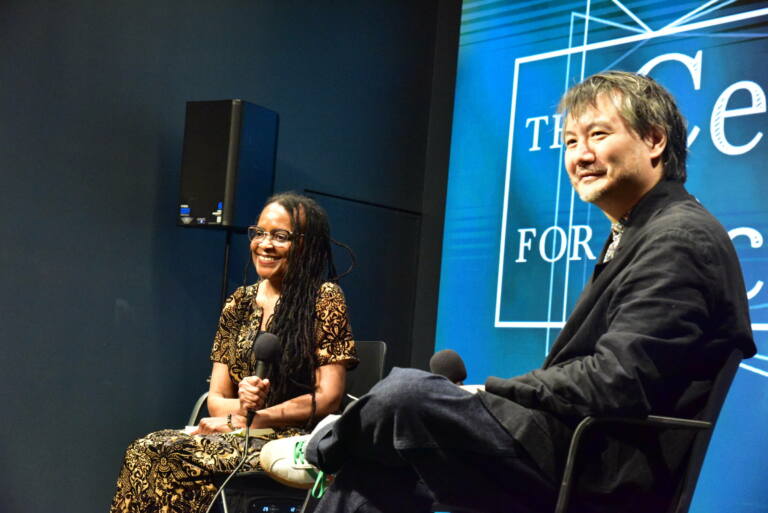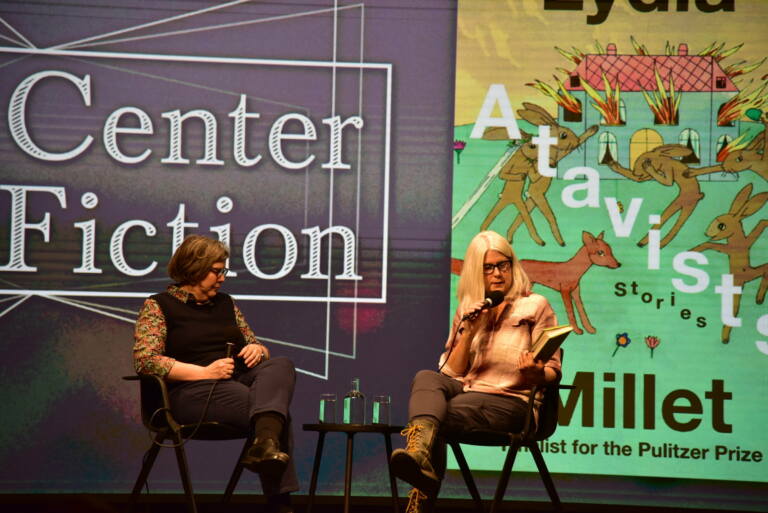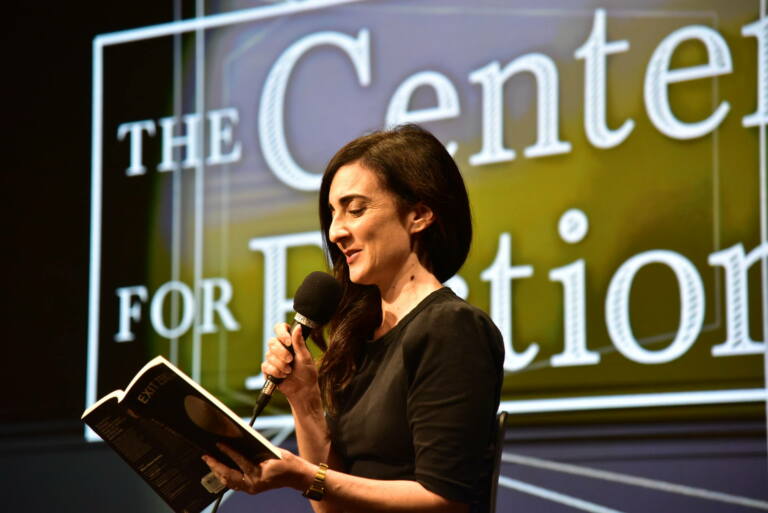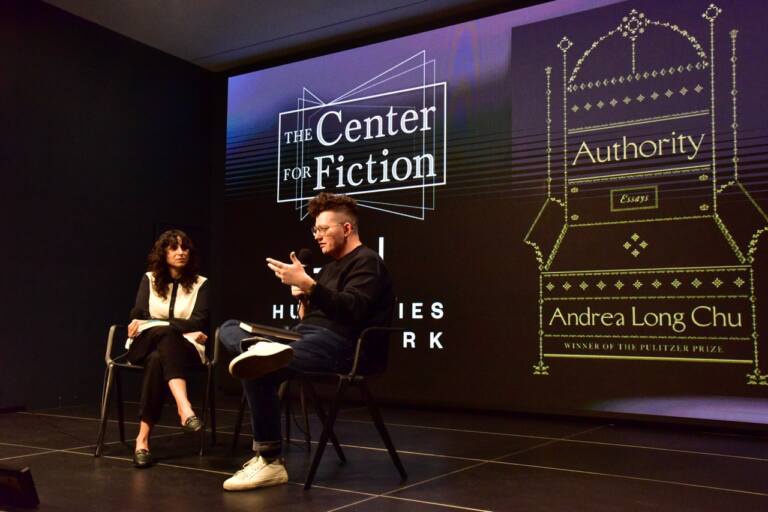May 1, 2025
Born in war-ravaged Vietnam, Viet Thanh Nguyen arrived in the United States as a child refugee in 1975. The essays in his new book, To Save and to Destroy: Writing as an Other, build upon his insights and life experiences to provide possible answers to age-old literary questions: What is a writer’s responsibility in a time of violence? Should we celebrate fiction that gives voice to the voiceless—or do we confront the forces that render millions voiceless in the first place?
Nguyen combines fact, fiction, and history to issue a resounding call to action and galvanize readers into radical solidarity. His essays also examine the many forms of “otherness” in literature through the lens of writers such as Herman Melville, F. Scott Fitzgerald, Ralph Ellison, William Carlos Williams, and Maxine Hong Kingston.
Nguyen was joined in conversation by Hua Hsu, staff writer at the New Yorker and English professor at Bard College, for an exploration of what it means to be a literary, historical, political, and familial outsider.
Featured Book
-
.
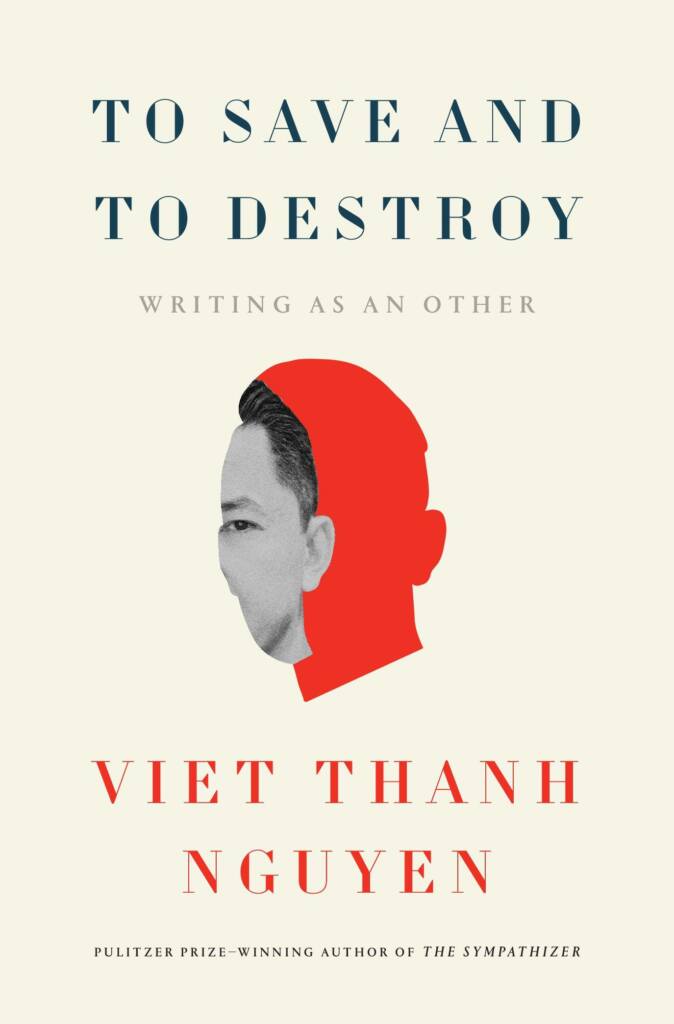
To Save and to Destroy: Writing as an Other
By Viet Thanh Nguyen
Published by Harvard University Press
Born in war-ravaged Vietnam, Viet Nguyen arrived in the United States as a child refugee in 1975. The Nguyen family would soon move to San Jose, California, where the author grew up, attending UC Berkeley in the aftermath of the shocking murder of Vincent Chin, which shaped the political sensibilities of a new generation of Asian Americans.
The essays here, delivered originally as the prestigious Norton Lectures, proffer a new answer to a classic literary question: What does the outsider mean to literary writing? Over the course of six captivating and moving chapters, Nguyen explores the idea of being an outsider through lenses that are, by turns, literary, historical, political, and familial.
Each piece moves between writers who influenced Nguyen’s craft and weaves in the haunting story of his late mother’s mental illness. Nguyen unfolds the novels and nonfiction of Herman Melville, F. Scott Fitzgerald, Ralph Ellison, William Carlos Williams, and Maxine Hong Kingston, until aesthetic theories give way to pressing concerns raised by war and politics. What is a writer’s responsibility in a time of violence? Should we celebrate fiction that gives voice to the voiceless—or do we confront the forces that render millions voiceless in the first place? What are the burdens and pleasures of the “minor” writer in any society? Unsatisfied with the modest inclusion accorded to “model minorities” such as Asian Americans, Nguyen sets the agenda for a more radical and disquieting solidarity with those whose lives have been devastated by imperialism and forever wars.
Featuring
-
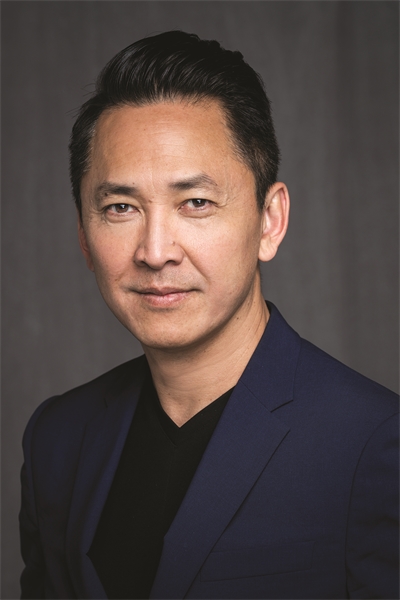
Viet Thanh Nguyen
Viet Thanh Nguyen
Viet Thanh Nguyen is the author of the Pulitzer Prize–winning novel The Sympathizer, winner of The Center for Fiction First Novel Prize, and Nothing Ever Dies, a finalist for the National Book Award. A recipient of the MacArthur Foundation and Guggenheim fellowships and a member of the American Academy of Arts and Sciences, Nguyen is Aerol Arnold Chair of English and Professor of American Studies and Ethnicity at the University of Southern California. He is the first Asian American member of the Pulitzer Prize Board. Born in Vietnam, Nguyen arrived in the United States as a child refugee with his parents and grew up in San Jose, CA, where his family opened the city’s second Vietnamese grocery store. He lives in Pasadena, CA.
Photo Credit: Hopper Stone
-
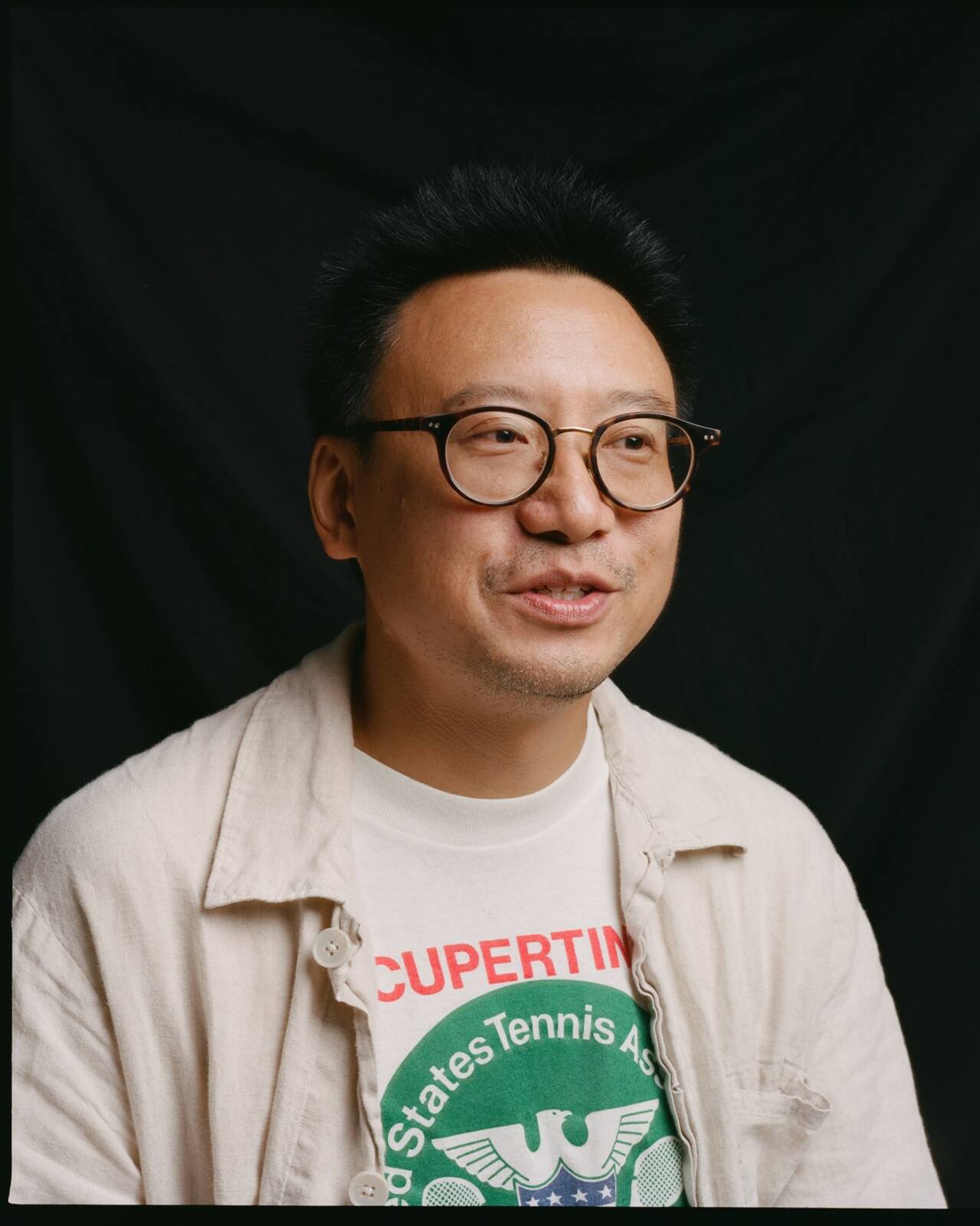
Hua Hsu
Hua Hsu
Hua Hsu is a staff writer at the New Yorker and the author of Stay True: A Memoir and A Floating Chinaman: Fantasy and Failure Across the Pacific. He teaches at Bard College and publishes Suspended in Time, a series of zines about music and life.
Photo Credit: Alex Hodor Lee

